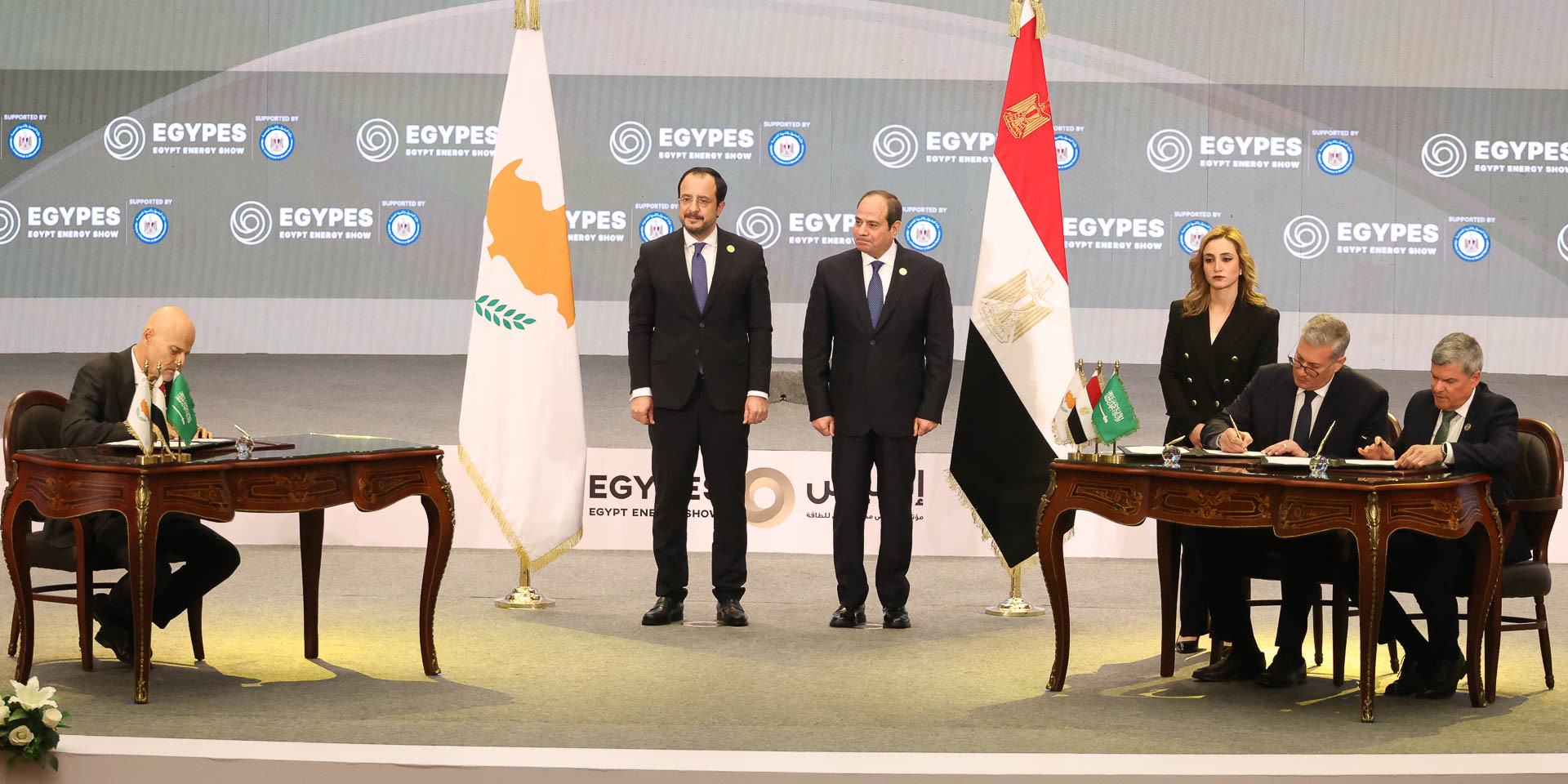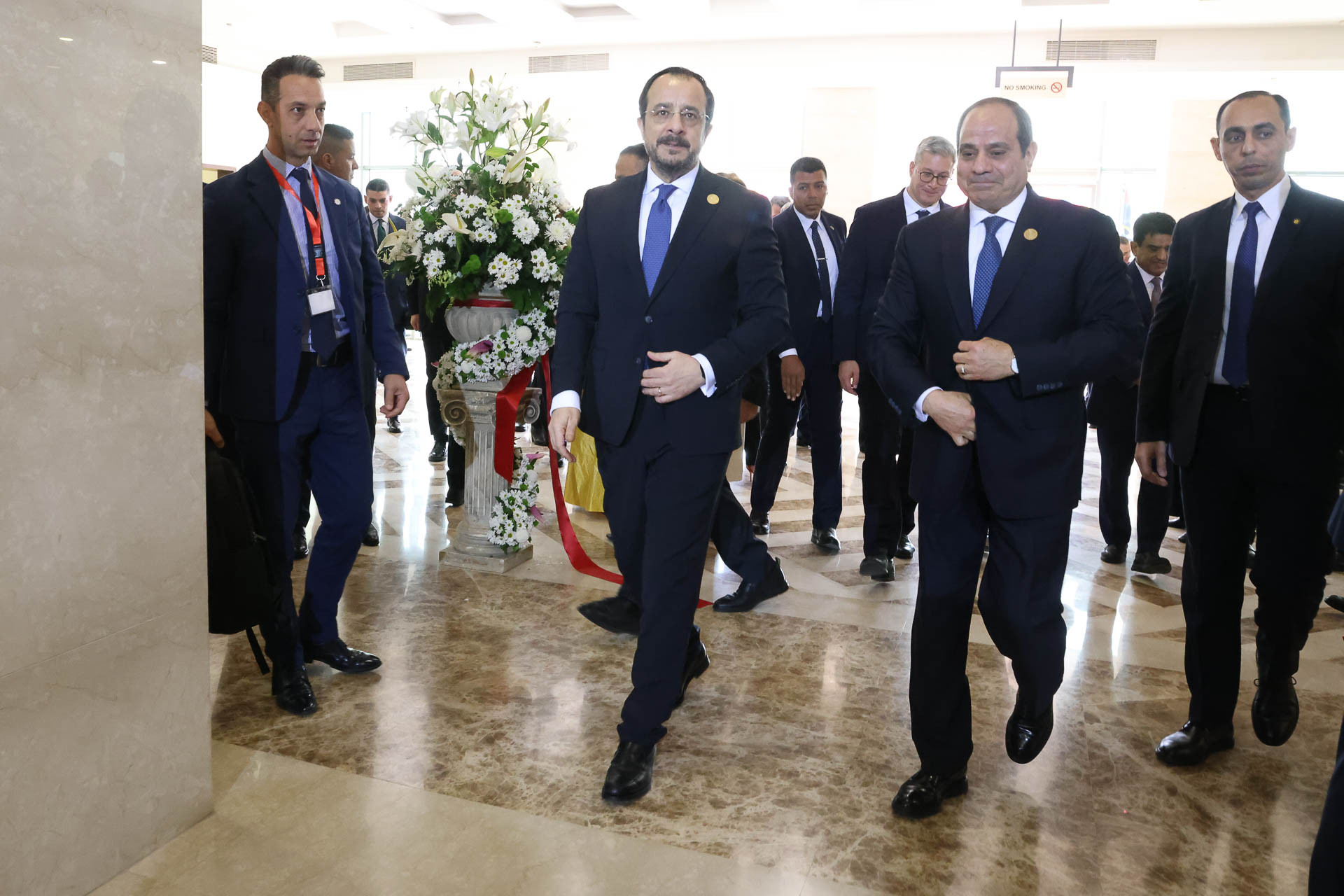

Yiannis Ioannou
The Christodoulides administration places great strategic importance—both in terms of energy and geopolitics—on the President’s visit to Egypt. This visit comes against the backdrop of the signing of an agreement and a Memorandum of Understanding (MoU) for the development of the Aphrodite and Kronos gas fields, located in Blocks 12 and 6 of Cyprus’ Exclusive Economic Zone (EEZ), respectively.
Last Friday, February 14, the Republic of Cyprus and Chevron reached an agreement on the revised development plan for the Aphrodite field after prolonged negotiations that began on August 25, 2024. The revised plan, estimated at $4 billion, includes on-site production via a floating production unit, with an initial daily output of 800 million cubic feet (MMCF) and four production wells. The latter two wells have been a consistent demand from Nicosia throughout the negotiations.
On Monday, at the sidelines of the Energy Show (EGYPES) 2025, Energy Minister George Papanastasiou signed a Host Government Agreement with Egypt for the export of natural gas from the Kronos field (Block 6), which is being developed by Italian energy company ENI. The gas will be transported to Egypt. Additionally, a Memorandum of Understanding (MoU) was signed between Egyptian authorities and the Aphrodite consortium—comprising Chevron Cyprus Limited (35%), NewMed Energy LP (30%), and BG Cyprus Limited (35%). This MoU is effectively tied to the export of Aphrodite’s gas volumes to the Damietta LNG terminal in Egypt.
Bilateral Talks with Egypt
While in Cairo, President Christodoulides and his delegation, which included the Ministers of Energy and Foreign Affairs, also engaged in high-level talks with the government of Egyptian President Abdel Fattah el-Sisi. Given the timing and evolving regional dynamics, these discussions were considered of great strategic importance for regional policy and energy cooperation.
Aphrodite Development and Timeline Concerns
Following the announcement of the agreement between the Republic of Cyprus and Chevron, Israeli company NewMed Energy confirmed that the conditions set by Nicosia—on-site production via a floating production facility (FPC), four production wells, and an output of 800 MMCF per day—had been met. However, the company also noted that before a Final Investment Decision (FID) can be made by Chevron, the project must first go through the Front-End Engineering Design (FEED) and pre-FEED phases.
Key takeaways from the agreement and analysis by "K" include:
- No clear timeline for the FEED phase, though "K" sources estimate it could take around 9–10 months.
- Aphrodite production is now expected to begin in 2031—almost two decades after the field’s discovery in 2011. Under certain conditions, this could be delayed even further, potentially beyond 2035.
- Several uncertainties remain, including project costs, financing, geopolitical risks, security considerations, gas prices, supply issues, technical challenges in construction and transportation, and market demand for the gas.
Additionally, Cyprus and Israel have yet to finalize their agreement on the division of gas from the Aphrodite field. Israel claims a share of the 3.6 trillion cubic feet (TCF) of gas in Block 12, arguing that approximately 10% of the Aphrodite deposit extends into the adjacent Ishai field within Israel’s EEZ. Sources indicate that Nicosia is working toward finalizing a co-development agreement with Israel, which may involve an official visit to the country in the near future.

Egypt as a Strategic Energy Partner
Ahead of his visit to Cairo, President Christodoulides spoke with Egypt’s state-run MENA news agency, highlighting the strong ties between Cyprus and Egypt across multiple policy areas. He emphasized that Nicosia views this partnership as strategic, built on shared values, mutual respect, and extensive cooperation.
Regarding future collaboration—particularly in energy—President Christodoulides noted that relations between the two nations have reached new heights, especially with the agreement to transfer gas from Cyprus’ Kronos field to Egypt. He also reiterated Cyprus’ commitment to the EuroAfrica Interconnector, a project linking Egypt’s electricity grid to Europe via Cyprus and Greece. This initiative aims to enhance energy security and sustainability while establishing Egypt as a key energy hub.
In an interview with Ahram Online, President Christodoulides reiterated the importance of Cairo-Nicosia cooperation, referencing the Nostos (Roots Revival) initiative, which has fostered significant cultural and diplomatic exchanges. During the 10th Trilateral Summit in Cairo this past January, both leaders stressed the significance of the recently signed energy agreement and MoU. These agreements, they affirmed, lay the groundwork for substantial implementation of joint energy projects.
During their official meeting, attended by high-ranking officials from both countries, discussions focused on upcoming energy objectives and milestones. The two leaders underlined the importance of strengthening energy cooperation bilaterally and regionally, presenting Cyprus and Egypt as a model for stability, peace, and economic development in the Eastern Mediterranean.
*This article was translated and summarized from its Greek original































